English department responds to use of N-word in class
February 29, 2020
While quoting “The Narrative of the Life of Frederick Douglass,” Kristina Groover read out the N-word in full in her African American Literature class which caused one of her students to become uncomfortable.
On Feb. 15, The Appalachian published a Letter to the Editor from the Director of Diversity and Inclusion for the Student Government Association, Jay Edwards. In the letter, Edwards said he spoke to her about the use of the N-word and how it made him uncomfortable.
He wrote that he believed they had come to an understanding, but she continued to read it aloud in full during class.
On Feb. 24, The Appalachian published a Letter to the Editor from Chair of the Department of English, Leonardo Flores, addressing Edwards’ letter.
“We discussed this incident in our department meeting last Friday, and genuinely regret Mr. Edwards’ pain and that of any other student resulting from this or any other content in our courses,” Flores wrote. “We are also concerned by how this situation has affected Dr. Groover, because she is a respected colleague with a passion for African American literature and a history of activism for social and racial justice.”
He continued to write, “We recognize that neither our academic privilege nor our past actions make us impervious to the serious, painful, and complex history surrounding racist language.”
Edwards said it was disheartening to see the English department paint her in a positive light and used her past accomplishments “to justify her actions.”
“That means nothing to me because she still did what she did,” Edwards said in response to the LTE. “You could tell the statement was worried about protecting the interests of the professor and the university over protecting the interests of the students.”
He also said he didn’t believe the letter from Flores fixed anything.
Flores wrote that the department wrote its Diversity Statement “with significant leadership of Dr. Groover.”
“They did not talk about how her actions were bad,” Edwards said. “They basically just said she’s a good person.”
Groover declined to comment at this time and directed The Appalachian to Flores.
At the end of his letter, Flores wrote: “I ask for patience so we can have the conversations necessary to address this situation as best we can. And while we’re doing so, I ask us to be generous as a community in the ways we interpret people’s motivations and actions, so we can continue to work in good faith toward a positive resolution.”
Megan Hayes, chief communications officer, said all students taking the course in question were offered alternative options for continuing it.
App State has guidelines for student grievances that include attempting to resolve the matter with the person directly, submit a complaint to the person’s immediate supervisor and if the person is still not satisfied with the resolution, they file to the next level supervisor. The full step-by-step recommendations can be found here.
“Following process is important. It is also very important to recognize this is a matter that has the potential to become broadly divisive, yet, more importantly, offers opportunities for facilitating difficult conversations and finding constructive outcomes. So, a principal priority right now is to build trust where trust has been eroded. There are many conversations taking place with that goal at the heart,” Hayes said.
Clay Calvert, director of the Marion B. Brechner First Amendment Project at the University of Florida, said a professor being protected under the First Amendment would boil down to whether the use of the N-word was relevant to the subject matter.
“To the extent that she may have been quoting from a work of or about African American literature in a class about African American literature, it would seem — at least at first glance — to be germane to the subject matter, as compared to being gratuitous or unrelated,” Calvert said. “That does not mean, however, that the use of that word is morally, culturally or socially appropriate, even though it might be legally permissible.”
Marion B. Brechner First Amendment Project is a nonprofit, nonpartisan organization dedicated to current and contemporary issues affecting the First Amendment’s freedoms of speech, press, thought, assembly and petition.
Hayes said Chancellor Sheri Everts, Chief Diversity Officer Willie Fleming and English department Chair Leonardo Flores are “deeply engaged” in the situation along with other administrators from Academic Affairs and Student Affairs.
“At the department level, discussions are taking place about pedagogy, and fostering collaborative and inclusive settings for learning. This work is profoundly complicated, difficult, and layered with power dynamics and personal and professional identities including those of race and generation,” Hayes said. “There are no easy answers, but there are many people who have reached out to members of the administration offering their willingness to be a part of ensuring Appalachian is a welcoming campus that values inclusive excellence – a foundational principle of academic freedom.”
This is an ongoing story that will require more reporting as it develops.

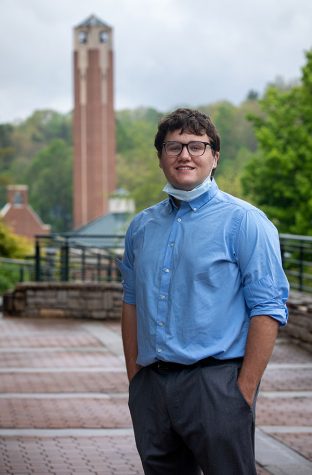


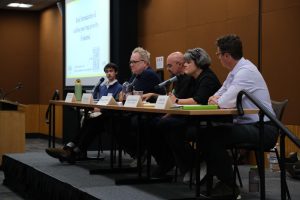




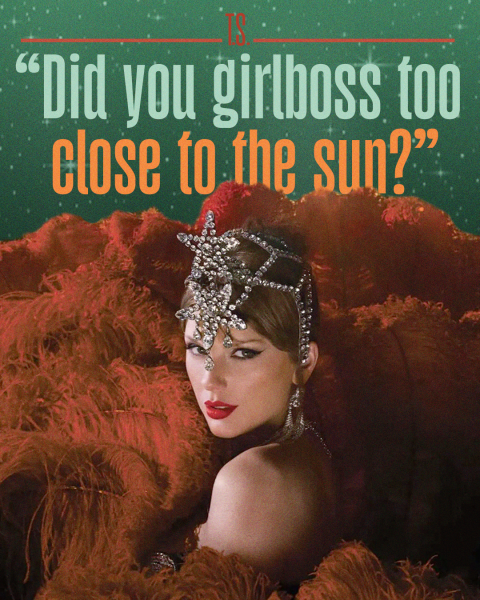
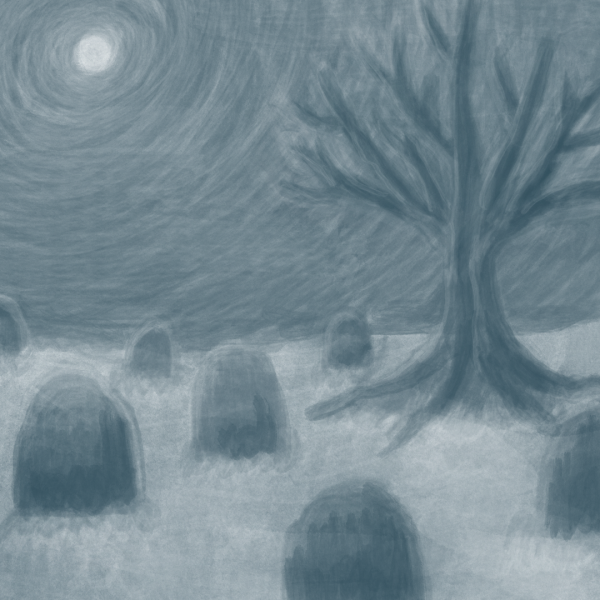
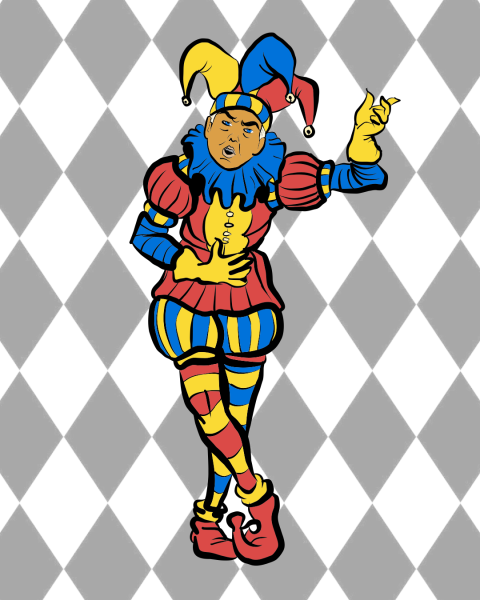

J. Farmer • Mar 4, 2020 at 9:27 am
What has been left out of these discussions is that the professor apologized to the student in an email and promised not to read the word aloud again. This was before he initiated his campaign against her. If we cannot listen to each other and discuss out differences, we will never overcome the divides that are tearing us apart.
“We need not look any further than the “golden rule” (do unto others as you would have them do unto you) to find the tools that enable us to transcend racial and ethnic conflicts that keep us from working together and celebrating our victories. Our present approach cripples members of the designated victim groups while creating new victims among those classified as oppressors.” Dr. Carol Swain
https://www.thecollegefix.com/black-law-scholar-explains-how-critical-race-theory-is-a-dangerous-and-destructive-ideology/
Julianna Phillips • Mar 3, 2020 at 8:48 pm
Regardless of how Jay handled the situation, if a Black student feels uncomfortable when a White professor uses the N word, that is okay. It does not matter if it is a part of literature, it is not important to say the N word in order not to forget how harshly the word is used. Explaining the history behind the word, works just fine. The professor does not need to read the word in literature to explain to her students the context of it. I’ll say this again, if a Black student feels uncomfortable when a White professor says the N word in ANY context, it is okay. That word was used by White people as a form of hatred, Black people now have and get to use this word exactly how they want to. It is not a word that any Non Black person gets to use. If a Black person is uncomfortable when this word is spoken from a White persons mouth, it is certainly justified. If you can’t understand why this Professor is out of place, you are the issue. I have experienced many White people and professors effectively educate the public or students about this part of history and never once did they need to say the N word, nor even while reading literature. I am shocked at the people in the comments expressing that Jay should not be in school, if this is you, please do some self reflecting and think about this.
Thomas Brooks • Mar 3, 2020 at 8:53 am
This makes the school look like a joke. I was planning on attending until I saw what you give attention. You are seriously going to give this lunatic attention for having his feelings hurt in a black history class? This school is a joke and you are just proving it by writing this article. Get your stuff together its college not recess.
SJW • Mar 2, 2020 at 7:33 pm
What Jay Edwards is demanding is not new: it’s known as a speech code, which prohibits certain words from being spoken and imposes harsh penalties for speaking them. This is a common tool of totalitarian regimes, which recognize that limiting and punishing speech is a very effective way to control people.
Imposing a speech code at Appalachian would violate the First Amendment and a number of state laws, as well as the university’s free speech policy. But theoretically, if Appalachian were to impose a speech code, which words would be prohibited? Jay Edwards, while demanding that his professor lose her job for reading a particular word out loud, has posted online comments that use misogynistic, sexist slurs against her. So apparently, under his desired speech code, it would still be permissible to call women terrible names.
Jay has further complicated his argument by repeatedly stating that a “white woman” has no right to read this word. So, would the hypothetical speech code state that men, or people of color, have the right to speak certain words, but women and white people do not? That, too, would violate anti-discrimination laws, which don’t permit different policies for different people based on their gender or race.
The university’s chief communications officer and the English Dept. chair have called for more campus conversation on issues of diversity, inclusion, and free speech. But Jay Edwards has shown no interest in constructive conversation; he seems interested only in spewing public hatred toward his professor. Why does his proposed speech code apply only to the professor, and not to him? It is pretty hard to take him seriously as the SGA’s “Director of Diversity and Inclusion” based on his disgusting behavior.
Fresh Alumni • Mar 2, 2020 at 1:26 pm
Content Warning – Racism, Verbal Violence.
Written quotes included and marked with # signs.
Links included in numbered list at end of comment. (0)
————————————————————————————
Let’s start by saying that the faculty of Appalachian State’s English-department for African American studies (1) does not seem to have a single Black professor, as Bruce Dick, Carl Eby, and Kristina Groover are all non-black, and Grace McEntee has no images hosted by App.
Let’s start by admitting that Black students on Appalachian’s campus are no strangers to overt displays of racism and judgement, from chalking of vitriolic hate-speech (2); the hanging of a white nationalist flag on our campus (3); to the willingness of the Appalachian itself to run side-by-side articles of this issue (4) with comments allowed on its website such as –
#”[Jay Edwards] needs to take a gap year and grow up. This isn’t kindergarten. Don’t take an African American Literature class if you don’t want to hear what the African American authors had to say/write. And seriously, if (Jay Edwards) really thinks that a black professor can teach material that can’t be taught by a white professor cannot, he doesn’t belong on campus. If he really thinks that context doesn’t matter, he is too simplistic to handle college level material…. (Jay Edwards) can come back when he grows up and wants to learn from college-level material and can handle debates without trying to burn the house down. What a joke.” – TJ Smith.
Let’s not forget a key part of the original article posted to the Appalachian here (5), written by Jay Edwards:
#”Not only did she unapologetically say this hateful and disparaging word, but she encouraged her white students to say it as well. She invited her overwhelmingly white class, at this predominantly white institution, to say a word that every person in that classroom, including her, knew was not acceptable for a white person to say.”
For Jay Edwards, avoiding a CLASSROOM full of White folks saying the N-Word is not about skirting education, it’s about his safety, a feature of “diversity and inclusion” that Appalachian State Administrators seem to forget time and time again. In his original article, Jay Edwards wrote that this event was violent to him (5):
#”This not only was an extremely racist act of aggression, but I thoroughly consider this an act of violence. Violence, not in the physical sense, but in the way that negatively affects my mental health and my educational experience.”
And yet, the public gas-lighting of Jay Edward’s emotional experiences as infantile and anti-educational continue to use the Appalachian website’s public comment feature to facilitate disparaging rhetoric as “free-speech” and worth including in the investigative process.
—————————————————————————————————————————————————————-
This situation stands in stark contrast to another administrative decision that occurred 8 years ago, where a tenured Professor of Sociology at Appalachian State, Jammie Price was placed on leave after she used an educational, sexually explicit documentary, “The Price of Pleasure” (6) in class. The article notes that Jammie Price obtained the documentary from BELK LIBRARY.
The article continues to read:
#[According to a letter Ms. Price received last month from Anthony Gene Carey, vice provost for faculty affairs, Ms. Price failed to warn students that the material may be “objectionable or upsetting,” and at least three students complained to administrators that the content was “really inappropriate,” Mr. Carey wrote.]
Of EXTREME importance to note is that Anthoney Gene Carey (7) who used to serve as VICE-PROVOST of Appalachian until a vote of no confidence (8) by the ASU faculty removed him is also a member of ASU’s faculty who claims his area of expertise in “African American and Africana Studies, United States History”.
Note the language of “at least 3 students” used by Mr. Carey, and how this was enough to make a decision stern enough to keep Jammie Price without pay. I would not believe that the same ASU students, such as TJ Smith, would make the same argument about the “infantile concerns” of students who complained to Mr. Carey over this documentary.
I ask readers of this article and its prior to consider the implications of Administrative behavior both now, and in the past. I also ask readers of this article who may be White to have conversations with their peers about the role of race in their own education.
~ Live fast, die young, bad girls do it well.
Resources –
1: https://english.appstate.edu/faculty-staff/field
2: https://www.freshu.io/mia-renee-cole/appalachian-state-students-of-color-target-of-harassment-after-chalkings
3: https://www.wataugademocrat.com/news/white-supremacist-banner-briefly-displayed-on-campus/article_044fddaf-cf43-52cf-9bff-195128126e7b.html
4: https://theappalachianonline.com/english-department-responds-to-use-of-n-word-in-class/
5: https://theappalachianonline.com/letter-to-the-editor-3/
6: https://www.chronicle.com/article/Tenured-Professor-Is-Placed-on/131607
7: https://history.appstate.edu/faculty-staff/anthony-carey
8:https://www.wataugademocrat.com/news/update-vote-on-provost-divides-asu-faculty/article_4d7558a1-db9f-535e-8554-3fda5eda3234.html
Mackenzie Morris • Mar 2, 2020 at 11:44 am
I took African American Literature a year ago with Dr. Groover. When I saw Jay’s slandering post it left me extremely disheartened. He posted her picture on multiple social media platforms and refused to answer anyone’s questions as to what context the word was used. At the beginning of my semester with her, Dr. Groover told us all that the subjects taught in this class could be hard to talk about and cause controversy. She made it clear that she was always welcome to speak with students if they were feeling uncomfortable with any of the topics that were discussed. It’s important to note that the word was used in readings ONLY! Hearing the word used during the reading of passages made it absolutely clear why we don’t use this word today and the deep cultural history behind it. The point of educating ourselves on the history of the nation is to ensure that history is not repeated, so why should we block out or “skip over” the use of the word while reading it? The word was used as a direct quote from Frederick Douglass NOT Kristina Groover. African American Literature is Dr. Groover’s career and passion. She has traveled to conferences and is thoroughly educated on the topic. It’s a shame that Jay Edwards tried to take this from her.
Lauren • Mar 2, 2020 at 11:37 am
These comments are disgusting. He went through formal processes initially to try to resolve the issue, and when he was not heard he complained and got more people involved. Ya’ll who’ve commented are literally just racist; WE don’t need protection from HIM.
HP • Mar 2, 2020 at 11:18 am
If you think a white professor should be able to say n*gger in class and alienate any student, you are a racist.
Rhonda Shinn • Mar 2, 2020 at 5:40 am
When I read Jay Edwards Facebook comments someone asked him what context was the word used? His reply he doesn’t matter the context She is a white woman using th N word! Who’s the racist here???
Jackie M. • Mar 1, 2020 at 10:11 pm
Jay has embarrassed us. As students that want better, we have to be better. If a literature professor is racist for reading the writings of others from a classic book (which is completely ridiculous), then what is Jay for the horrible things he tweeted and retweeted about her? Calling the professor a female dog (_itch)? He’s sexist for sure! Sharing her personal information? He’s definitely irresponsible and cruel. The hateful speech he spread online? He’s clearly malicious and nasty. He knows this because he’s since locked up his facebook and twitter. Too late because it’s out there. If there is a hostile environment, it is Jay’s doing.
honorific • Mar 1, 2020 at 4:27 pm
This coverage is disappointing. You have a student and his many followers on social media piling on a single professor, the putative transgressor – nay, heretic – whose sin was to have read aloud the N word, which, when read aloud by a white person, specifically, is utter blasphemy.
The student gave no sound reason why he takes such a punitive approach, why that action constitutes an actionable offense, or why anyone should expect the university to give him his way and fire the professor. I could respect the student if he had presented a sound argument. The student’s approach has been an ineffective way to change minds and hearts, if that is even his goal.
We must continue the civil rights struggle (there is much work to be done!), and in that effort we will be very glad we have free speech rights and academic freedom in the academy.
Megan Hayes acts as though this is some complicated situation. It is not complicated. Is this why the university pays its PR person more than just about any professor on this campus— to care more about the university’s image than insight, and prioritize perception over actual progress?
J Henry • Mar 1, 2020 at 2:56 pm
The lessons here.
1. What the professor did WAS NOT wrong, as it was directly the subject matter of the course. She read directly from an African American author in an African American Literature class. She read Fredrick Douglas’ words. The content was directly relevant to the course. She did not speak her own words. It DOES NOT violate any law or university policy, and is actually protected by the constitution.
2. What the student did WAS wrong. His hateful online bullying campaign actually DOES violate the law and DOES violate university policy. His bullying campaigned called the professor the B-word, mischaracterized what happened in the class, posted her personal information online, asked for people unrelated and uniformed of the episode to file false complaints, and simply acted like a horrible member of the campus community. There is NO place for this behavior on any campus.
3. Megan Hayes is uniformed. Inclusive excellence stands alone as a worthy ideal. However, inclusive excellence is NOT a fundamental principle of academic freedom. This statement reveals the lack of knowledge and sophistication that Hayes and this administration has on such issues.
4. The student should not be in college. He clearly isn’t interested in the actual material from the African American Literature course. Just imagine if all students were like this. A fundamental christian may not like hearing about evolution in a science class. A Chinese student may not like reading quotes about the Nanking Massacre from Japanese leaders. A Muslim may be offended by the classic novel Satanic Verses.
The list could go on, but the point is that the university is not a place to protect students from material they may find offended. It is a place where students study good and bad history, students study safe and controversial ideas, faculty teach and research politically touchy topics, and people engage in discussions and debates to learn and grow.
The university should be a safe place from mean people, but it is NOT a safe place from history, ideas, cultures, information and course material. In this case, the student is the mean person, and we all need protection from him